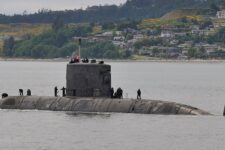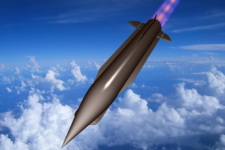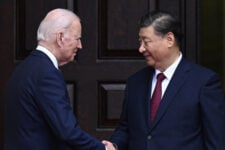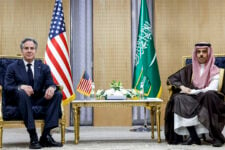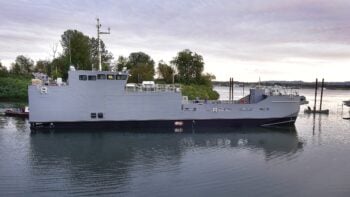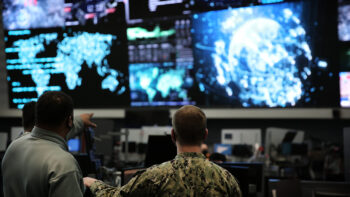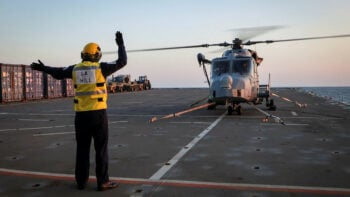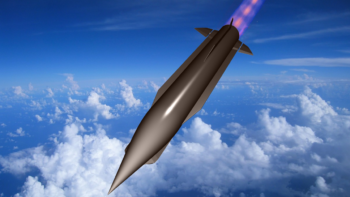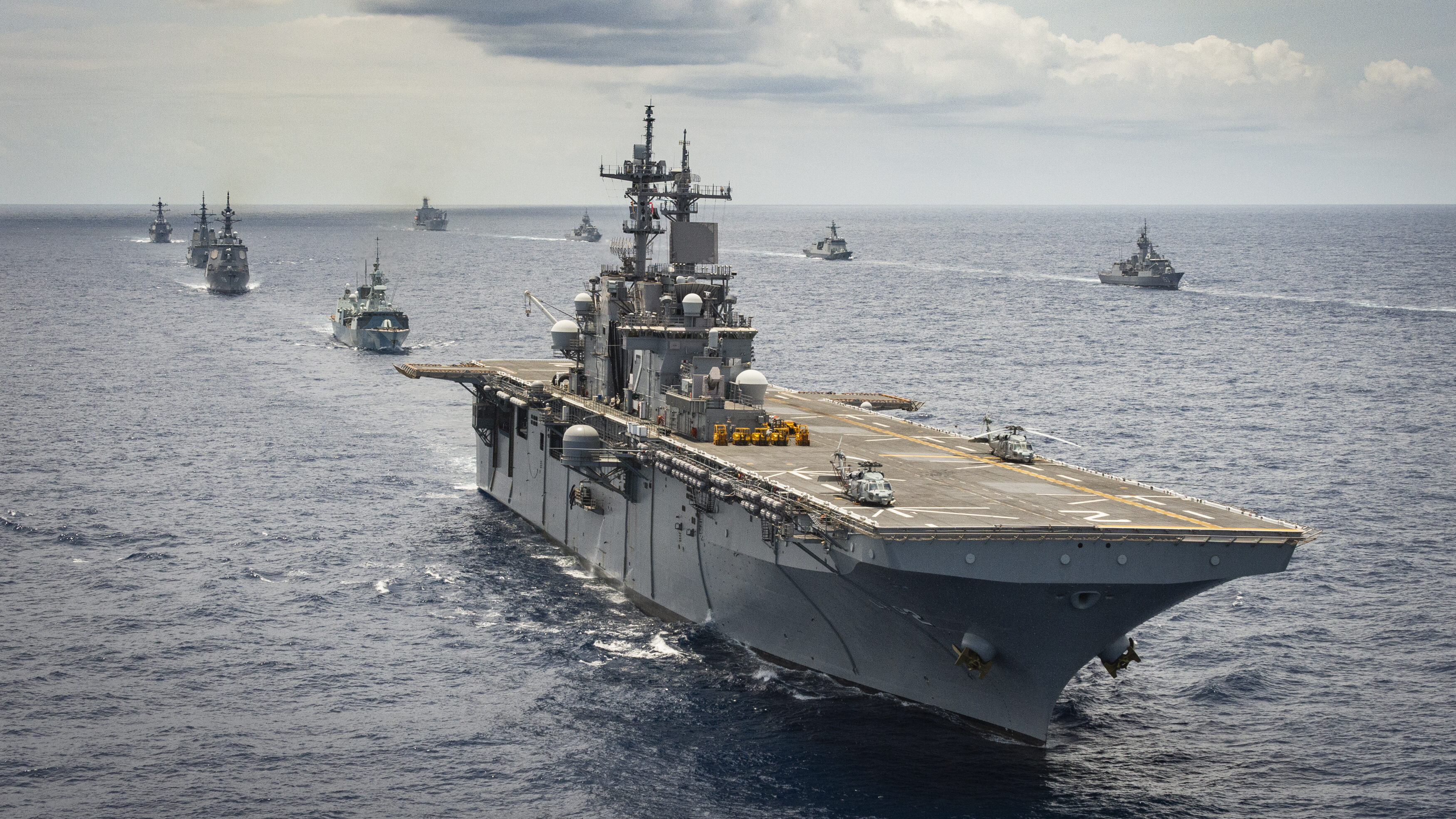
Multinational navy ships and a submarine steam in formation during a group sail off the coast of Hawaii during RIMPAC 2020. (File)
MELBOURNE: There are few left in the Indo-Pacific outside of the People’s Republic who believe China is a benevolent power intent on complying with and enhancing international law and bolstering its neighbors.
The trend seems pretty clear: Beijing will deploy money, lots of verbal threats and weapons to get its neighbors to do what it thinks they should do, all while bolstering China’s domestic economic situation.
How are the governments of the South China Sea and the Pacific behaving in the face of this conduct? We’ve seen Australia bind itself much more closely to the United States by enhancing ties through the AUKUS agreement. Two newspapers reported this week that Japan and the US have agreed to a plan to deal with a “Taiwan emergency.” While neither government has confirmed the reports, the stories appear to be well sourced and are in reputable news outlets.
[This article is one of many in a series in which Breaking Defense reporters look back on the most significant (and entertaining) news stories of 2021 and look forward to what 2022 may hold.]
In the smaller states of the Pacific — much more vulnerable to blunt tools of influence than the Philippines, Vietnam, South Korea or Japan — the battle is more visible. Take Fiji, for example. In 2020, two Chinese diplomats reportedly attacked and seriously injured a Taiwanese delegate at the Grand Pacific Hotel, site of a celebration of Taiwan’s national day. The government in Fiji did not take action, something seen as a kowtow to Beijing. In next year’s likely elections, Fiji’s former leader Sitiveni Rabuka may well take a different approach to current Prime Minister Frank Bainimaramar, and push back against China’s tentacular offers of cash and aid.
While Fiji may move away from Beijing, elsewhere in the region the PRC continues to find success. Riots erupted last month in the capital of the Solomons after its prime minister declared he would seek diplomatic relations with Beijing. On Christmas Eve, the island state declared Beijing will send a half-dozen officers to train the Solomons police in riot control and provide non-lethal assistance.
The question becomes how will America, along with its allies and partners, manage this fundamental conflict between China and other states in the region. The Five Eyes countries seem solidly opposed to China’s efforts to change the liberal international order, embodied by the Treaty of Westphalia, the Geneva Conventions, the Nuremberg Convention and the United Nations. China has long argued it doesn’t have to accept the boundaries of international law because it did not shape them or because they are not congruent with Chinese law.
China’s position on the South China Sea seems to make US and allied diplomacy and military force the likeliest means to successfully influence the PRC. Although there have been several credible predictions that China may actually go to war against Taiwan within the decade, the US, Japan, Australia and other countries are taking actions to make clear to China that the cost of military action would be beyond the PRC’s ability to sustain.
An intriguing signal lies in the just-passed National Defense Authorization Act, which urges the Biden Administration to invite Taiwan to take part in the next RIMPAC, the huge multinational exercise which in the past has included forces from Australia, Brunei, Canada, France, Japan, New Zealand, the Philippines, South Korea, Singapore and the United States. As recently as 2018, China itself had been invited to RIMPAC, but was disinvited that year because of its conduct in the South China Sea.
The Biden Administration and Congress seem intent on vigorously managing China’s pressure on Taiwan and on the liberal international order. Australia, Japan and other allies seem intent on taking similar actions. Does that mean a greater emphasis on threats or on talks? That may depend more on China’s actions than on Washington’s planning.


